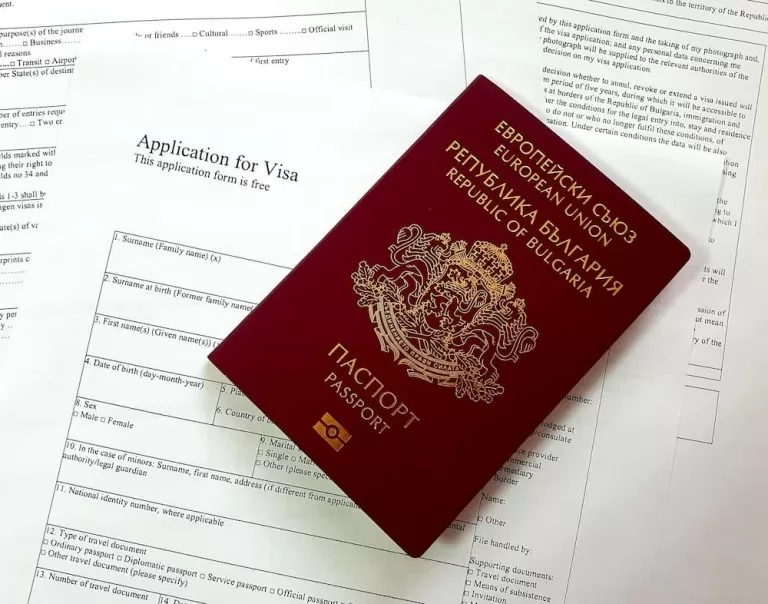Introduction:
Embarking on the journey of writing a law dissertation is a significant milestone in a student’s academic career. It’s not just an assignment; it’s an opportunity to contribute to legal scholarship, showcase expertise, and demonstrate the ability to engage in advanced legal research. In this comprehensive guide, we’ll explore the nuanced process of crafting a compelling law dissertation, enriched with insights from the esteemed professionals at Top Assignment Writers.
I. Understanding the Landscape of Law Dissertations:
1.1 Defining the Purpose:
A law dissertation is more than an academic exercise; it’s a scholarly pursuit that demands a deep dive into legal intricacies. It serves as a testament to a student’s capacity to contribute meaningfully to the legal field.
1.2 Significance in Legal Scholarship:
Recognizing the broader significance of law dissertations is foundational. These dissertations shape legal theory, influence policy, and mark a student’s intellectual growth in the complex realm of law.
II. Navigating the Preliminary Stages:
2.1 Selecting a Pertinent Topic:
The journey begins with the selection of a compelling and relevant topic. Top Assignment Writers stress the importance of aligning personal interests, addressing gaps in existing literature, and considering the real-world implications of the chosen subject.
2.2 Formulating a Robust Research Question:
Crafting a well-defined research question is the heartbeat of the dissertation. It provides direction, purpose, and clarity to the research process. Top Assignment Writers emphasize the need for a question that is specific yet broad enough for a comprehensive study.
III. Conducting Thorough Literature Review:
3.1 Identifying Key Legal Literature:
A meticulous literature review is essential for grounding the research in existing legal knowledge. Top Assignment Writers recommend identifying key legal texts, journals, and landmark cases relevant to the chosen topic.
3.2 Evaluating Existing Scholarship:
Critically evaluating existing scholarship sets the stage for original contributions. Top Assignment Writers stress the importance of a critical approach to the literature review, identifying gaps and areas that warrant further exploration.
IV. Crafting a Solid Methodology:
4.1 Choosing a Research Design:
Selecting an appropriate research design is pivotal. Whether qualitative, quantitative, or a hybrid approach, the methodology should align seamlessly with the research question. Top Assignment Writers advise clarity in explaining the rationale behind the chosen methodology.
4.2 Ethical Considerations:
Addressing ethical considerations is non-negotiable in legal research. Top Assignment Writers emphasize the importance of maintaining ethical standards, especially when dealing with human subjects, confidential information, or sensitive legal issues.
V. Data Collection and Analysis:
5.1 Gathering Relevant Data:
Depending on the chosen methodology, data collection may involve legal case analysis, interviews, surveys, or archival research. Top Assignment Writers stress the need for accuracy and relevance in data gathering, ensuring it aligns with the research objectives.
5.2 Analyzing Legal Data:
Legal data analysis requires a meticulous approach. Top Assignment Writers recommend using appropriate legal frameworks and analytical tools to derive meaningful insights from the collected data, ensuring a robust foundation for the dissertation.
VI. Writing the Law Dissertation:
6.1 Structuring the Dissertation:
A well-structured dissertation is a hallmark of success. Top Assignment Writers stress the significance of a clear introduction, comprehensive literature review, meticulous methodology, detailed findings, insightful discussion, and a thought-provoking conclusion.
6.2 Writing Style and Clarity:
The writing style in legal dissertations should be a blend of precision and accessibility. Top Assignment Writers advise striking the right balance, ensuring clarity without sacrificing the depth required in legal discourse.
VII. Seeking Assistance from Law Dissertation Help:
7.1 Collaborating with Top Assignment Writers:
Engaging with Top Assignment Writers can elevate the quality of your dissertation. Whether refining research questions, improving literature reviews, or enhancing writing style, their expertise contributes significantly to the overall success of your law dissertation.
7.2 Addressing Challenges:
Top Assignment Writers understand the challenges students face during the dissertation process. From time management to writer’s block, seeking assistance ensures these challenges are effectively addressed, maintaining the momentum of the research.
VIII. Reviewing and Revising:
8.1 Conducting Thorough Reviews:
Multiple rounds of reviews are essential. Peer reviews, feedback from mentors, and self-reviews contribute to refining the dissertation. Top Assignment Writers stress the importance of this iterative process in achieving a polished final product.
8.2 Continuous Revision:
Continuous revision is the hallmark of a well-crafted law dissertation. Top Assignment Writers recommend revisiting and revising sections to enhance clarity, coherence, and overall quality, ensuring the dissertation evolves into a scholarly masterpiece.
IX. Formatting and Citations:
9.1 Adhering to Legal Citation Styles:
Maintaining accurate and consistent legal citations is paramount. Top Assignment Writers recommend strict adherence to recognized legal citation styles, such as Bluebook or APA, as specified by the institution.
*9.2 Finalizing Formatting Details:*
Top Assignment Writers stress the importance of attending to formatting details. Ensuring your law dissertation help adheres to the formatting guidelines provided by your institution adds a professional touch to the document.
**Conclusion:**
Crafting a law dissertation is a transformative journey, demanding dedication, critical thinking, and methodological rigor. By following this comprehensive guide and leveraging the insights provided by Top Assignment Writers, students can navigate the complexities of legal research with confidence. Your law dissertation is not just an academic requirement; it’s an opportunity to make a meaningful contribution to the legal field. With the support of Top Assignment Writers, you are well-equipped to master the art of writing a compelling law dissertation and leaving a lasting imprint on legal scholarship.
Frequently Asked Questions (FAQs)
1. How do I choose a suitable topic for my law dissertation?
Begin by exploring areas of law that align with your interests. Look for topics with relevance to current legal issues, address gaps in existing literature, and have practical implications. Discuss potential topics with advisors and consider seeking input from Top Assignment Writers for expert guidance.
2. What role does the literature review play in a law dissertation?
The literature review is foundational, providing context, and background, and identifying key sources, theories, and debates in your chosen field. It helps inform and justify your research. Top Assignment Writers stress the importance of critically evaluating existing scholarship to enhance the quality of your literature review.
3. How can I ensure ethical considerations in my legal research?
Maintaining ethical standards is crucial. This involves obtaining informed consent, protecting confidential information, and responsibly navigating sensitive legal issues. Top Assignment Writers recommend adhering to ethical guidelines set by your institution and relevant legal bodies.
4. Is collaboration with Top Assignment Writers beneficial for my dissertation?
Absolutely. Collaborating with Top Assignment Writers brings valuable expertise to your dissertation journey. Their guidance can refine research questions, improve literature reviews, and enhance your overall writing style. Seek their assistance for targeted support in areas where you may need expert input.
5. How crucial is the revision process in writing a law dissertation?
The revision process is critical. Multiple rounds of review, incorporating feedback from peers and mentors, contribute to clarity, coherence, and overall quality. Continuous revision, as advised by Top Assignment Writers, ensures that your dissertation evolves into a polished and scholarly piece of work.
6. Which legal citation style should I adhere to in my dissertation?
Top Assignment Writers recommend strict adherence to recognized legal citation styles, such as OSCOLA or Harvard, as specified by your institution. Consistency in citation enhances the professionalism and credibility of your dissertation.
7. How can I format my law dissertation for a professional appearance?
Pay attention to formatting details outlined by your institution. Ensure your dissertation adheres to these guidelines for a polished and professional appearance. Top Assignment Writers stress the importance of attending to formatting details for a refined final product.
8. Can I seek assistance with specific sections of my law dissertation?
Certainly. Top Assignment Writers offer targeted support for various aspects of your dissertation, including refining research questions, improving literature reviews, and enhancing writing style. Their expertise is tailored to meet your specific needs.
9. What makes a law dissertation a scholarly contribution?
A scholarly law dissertation contributes to legal theory, influences policy, and showcases the researcher’s intellectual growth. Top Assignment Writers emphasize the significance of choosing a topic that adds value to existing legal scholarship and demonstrates a deep understanding of the subject.
10. How can I leave a lasting imprint on legal scholarship with my dissertation?
By following this comprehensive guide and leveraging the insights provided by Top Assignment Writers, you can contribute meaningfully to legal scholarship. Your law dissertation is an opportunity to showcase your expertise, advance legal discourse, and leave a lasting imprint on the academic landscape.




